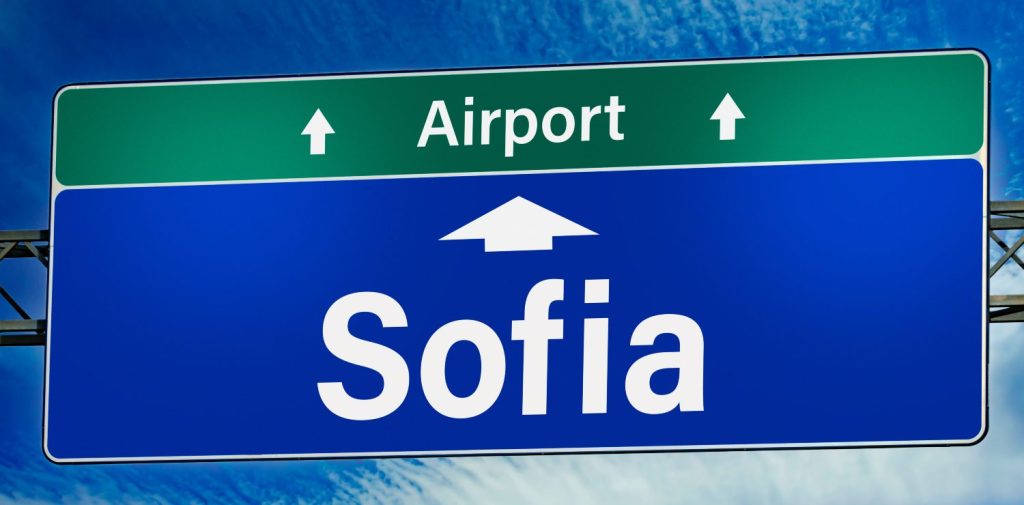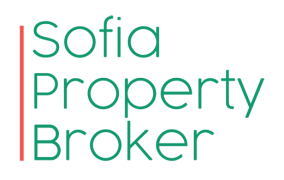
Sofia retains a lot of its Soviet bloc history, and you will experience many things that you will not find in other countries such as the Cyrillic alphabet, old communist blocks, Sofia Airport terminal 1, and some very old trams and trains. In this article, you will find out what to expect if your first visit to Sofia is in 2023.
Getting to Sofia
There are now direct flights from many European cities, Israel, Armenia and the middle east but no long-haul flights. Apart the national airline, Bulgaria Air, Ryan Air and WizzAir have a lot of routes as well as many of the European national carriers.
One thing to look out for is flights landing around midnight which seem especially popular with the no-frills airlines. Often there are several flights landing at around the same time causing a large line in Immigration for non-EU passengers. It is a good idea to check the number of incoming flights on the Sofia Airport Arrivals page to see how many flights are currently landing at the same day and time as your projected itinerary.
Please remember to clap when the plane lands as is the custom for Bulgarians who remember the old Balkan Air flights and how happy they were to be back on the ground!
Sofia Airport
Terminal 2 at Sofia went into operation around 2007, so is relatively modern and spacious with many staff speaking English. You will not find many concessions like other large international airports but the prices at the duty free are very cheap and not to be missed.
A few airlines such as WizzAir and EasyJet use Terminal 1 which is an experience not to be missed if you get the opportunity. At Terminal 1, you will find immigration desks, duty-free shops and backage reclaim facilities that you had forgotten had existed (if you are old enough).
Sofia Airport is connected to the very good Sofia metro system which will give you cheap and fast connections to many parts of the city. There is also a very well-regulated taxi system that will cost around 12 Euros to reach the center although communication with the driver is sure to be a problem if your destination is not a well-known landmark or hotel.
The best option on your first visit to Sofia in 2023 is to be collected by a friend, private car or business associate. Contact us if you have any questions about travelling from Sofia airport to your destination.
Bulgarian Currency
Bulgaria still has its own currency, the Leva, which is fixed at 1.95 to the Euro. Bulgaria hopes to join the Eurozone in 2025 but don’t hold your breath on this one as there are still many obstacles to overcome.
We recommend using cash points to get access to Leva rather than currency exchange booths.
First Visit Sofia 2023 Hotels
There are a wide range of hotels in Sofia with prices about half of what you would expect to pay in western Europe. Please ask us for recommendations that meet your requirements.
Food and Drink in Sofia
The hardest part of eating out in Sofia is getting a restaurant reservation. So please book ahead if you don’t want to be turned away.
The restaurants are getting better and better with prices still lower than you will experience at home but getting higher all the time. Bulgarians don’t like to tip much, so you will be well looked after by your waiter who will be expecting to get renumerated better than from a local.
A lot of the younger waiters and barmen now speak good English so ordering should not be a problem.
Credit cards and Revolute are widely used in Sofia so there is no need to carry lots of cash about even though the city is very safe.
Cyrillic Alphabet
Compared to 20 years ago, when western Europeans started to invest in the Sofia property market, English is much more widely spoken and written. In Sofia center, you will often find street names in both Bulgarian and English as well as restaurants with two different menus (in some cases the menus are not the same!) but the further you go out of town the situation becomes Bulgarian only.
If you are just planning to spend a few days in Sofia then it is probably only worth learning a few words like please, thank you and the bill, but if you are planning to spend any significant time here then you should at least learn the alphabet then the most popular words will come to you slowly.
To learn to speak Bulgarian fluently then bank on a years’ solid study to learn the grammar and enough vocabulary.
Telecommunications
All visitors to Bulgaria from the EU will get free mobile data access if they have an account in their own country.
If you are from outside the EU, then we would recommend using SIM cards which can be topped up so that you have a connection when not in a WIFI zone.
Smoking
The fact that smoking is very unhealthy has not deterred most Bulgarians to continue smoking and there are often ‘outside’ smoking areas in bars and restaurants to cater for the high demand.
If you are a smoker, then you will probably find the cost of cigarettes during your first visit to Sofia in 2023 much lower than you are used to at home.
Pharmacies
Bulgarians love to be stocked up on pharmaceutical products, so if you are in need of medicine you will find an ‘apteka’ nearby. In the center of Sofia many of the aptekas are open 24 hours a day.
Taxis
Uber is not available in Sofia but there are plenty of apps that allow you to hire a taxi in a way that is registered and secure.
This is a far safer way than hailing a taxi from the street when you may have problems explaining where you want to go and get overcharged.
Sofia Trams and Buses
There is an extensive tram and bus network in Sofia but, unlike the Sofia metro where information is in both Bulgarian and English, it is quite difficult to use if you do not speak the local language.
Parking in Sofia
If you decide to hire a car, then you will find it very difficult to find a parking space in the city center and some of the hotels even charge extra for parking.
Self-driving is by far the best way to get around Bulgaria, but we recommend only hiring a car as you leave the city. A satellite navigation system will be essential for you in all parts of the country.

